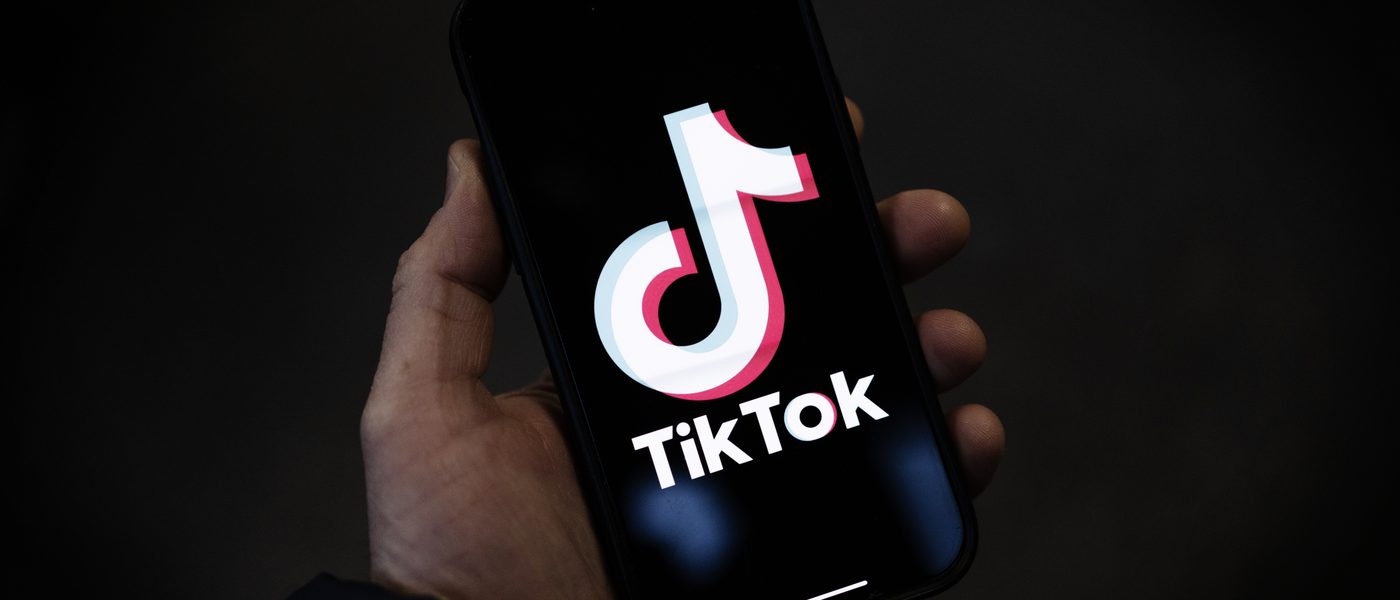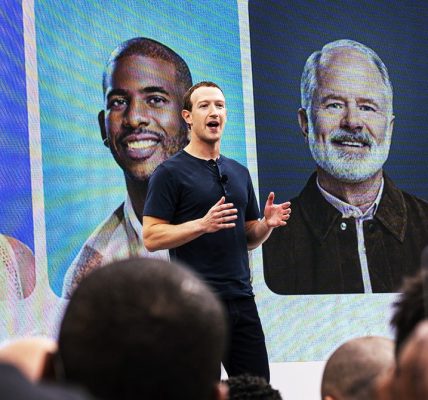Getting TikTok Out of the House: The Case For a U.S. Apparatus With a Separation From ByteDance
Banning TikTok in the US is back on the table after the House voted Wednesday to pass a measure that would do just that unless the app separates from Chinese parent company ByteDance. The bill passed with a two-thirds majority. Sixty-five members voted against it, with one voting present.
Amber Estenson, a 42-year content creator also known as “That Midwestern Mom,” went viral on TikTok two years ago when she uploaded one of her quirky Minnesota “salad” concoctions. The ingredients — Snickers bars, apples, Jell-O and Cool Whip — made her a viral sensation.
Other TikTokers use their platform as a means of giving back. William McCoy is a former drug dealer and also an ex-felon. He said that he uses his platform to help homeless people.
It’s possible that the House bill will be used as leverage by the senators in Washington to get TikTok to find a buyer other than Chinese.
The company has also touted an initiative dubbed “Project Texas,” saying that all U.S. user data has been transferred to servers controlled by Austin-based software company Oracle. TikTok says that Americans’ data is being watched by third-party auditors.
The Protecting Americans from Foreign Adversaries Controlled Applications Act (H.R. 7521): Sens. Mike Gallagher and a Democrat on the House Select Committee on China
The measure was approved unanimously by the House Energy and Commerce committee. It’s coming to the floor Wednesday under a process that requires two-thirds of the House to pass.
The bipartisan bill that was put together by Republicans and Democrats is not a ban of the video sharing app, according to Rep. Mike Gallagher, who chairs the House Select committee on China.
In speeches leading up to the vote on H.R. 7521, known as the Protecting Americans from Foreign Adversary Controlled Applications Act, members of Congress highlighted the many security concerns with the app, including the potential for employees at the Chinese company to access American user data, and the spread of pro-China propaganda.
Gallagher says the lobbying campaign that TikTok launched — with push notices using location information to connect users by phone to their member of Congress — proves why the bill is needed.
“You had member offices being deluged with calls, you know, teenagers crying and one threatening suicide and one impersonating one of my colleague’s sons,” he said. “That, to me demonstrates how the platform could be weaponized in the future.”
The president is allowed to address any threats from foreign owned apps that are found to be a national security risk. It also creates a system for users to download their own data and switch to an alternate platform.
Illinois Democrat, Raja Krishnamoorthi, is the ranking Democrat on the House Select committee on China and helped write the bill. He pushed back on the company’s argument, telling NPR, “There’s no first amendment right to espionage, there’s no first amendment right to harm our national security.”
The company says that it invested some money to set up a firewall in an effort to address data privacy concerns and keep users’ data in the US
TikTok: Facebook, Twitter, and Wall Street: Why Donald Trump is Opposing a Social Media Abuse Restrictions
Donald Trump advocated for a ban on immigrants when he was in the White House. The House bill does not appeal to him.
He promised to ban the social media app when he was president. Trump explained his new opposition in an interview with CNBC on Monday, saying that despite his the possible security risk, he opposed a ban because it meant users would move to another platform that he considered more dangerous.
There’s lots of good and lots of bad with TikTok. I think Facebook is an enemy of people along with the media because without TikTok, you can make it bigger.
Despite low unemployment and falling inflation, TikTok is full of viral videos bemoaning the U.S. economy. One popular group of posts uses the term “Silent Depression.” The posts falsely suggest that the country is in worse shape today than it was in 1930. Jim and Jeanna reported on the posts late last year.
How the Senate passes a bipartisan measure to protect the U.S. Constitution from extremist attacks on the Israeli-Palestinian conflict
A Wall Street Journal analysis found that TikTok flooded users with videos about extreme positions from both sides of the Israeli-Palestinian conflict, which was tilted towards the Palestinian side. “Many stoked fear,” The Journal reported. In November there were videos praising an old Osama bin Laden letter.
On Monday, the top U.S. intelligence official released a report saying that the Chinese government had used TikTok to promote its propaganda to Americans and to influence the 2022 midterm elections. The report said that China may try to influence the presidential election and create U.S. societal divisions.
President Joe Biden has already said that he would sign the bill, if it were passed by both chambers.
But even though the bill sailed through the House only about a week after it was first introduced, the Senate will present a whole different set of challenges.
Legislation in that chamber is barely begun due to the lack of a companion bill. Senate rules make it difficult to get enough members to clear it, even if one is introduced. One senator can hold up legislation to make sure it doesn’t move too fast.
Sen. Rand Paul (R-KY) has indicated he could be willing to do just that. He told The Washington Post prior to the House vote that he would block any bill he believed to violate the Constitution and said Congress shouldn’t “be trying to take away the First Amendment rights of [170] million Americans.”
Do we really need to ban TikTok to protect our children’s privacy? Sen. Josh Hawley’s push for a better resolution of the Senate RESTRICT Act
There’s room for doubts and lobbying money to appear in a long legal process. Consider the splashy introduction of the RESTRICT Act — another attempt to ban TikTok — in the Senate last year just before TikTok CEO Shou Chew testified in the House. Despite early excitement about the measure, it slowly fell off the radar as opponents lodged their critiques. It didn’t move through the chamber.
But Sen. Josh Hawley (R-MO) maintained his longtime support for taking action on TikTok’s China ties, saying on X after the House vote that “the Senate should take up this bill immediately.”
The Senate Intelligence Committee chair and vice chair said in a joint statement they were encouraged by the strong bipartisan vote in the House of Representatives and look forward to working together to pass the bill.
It’s significant that Warner is willing to get behind the House bill, given that he was the lead sponsor of the RESTRICT Act. Warner’s support for the new House legislation shows he’s willing to pursue other paths to deal with the threats he perceives from TikTok’s ownership.
“We don’t have only a TikTok problem—we have a Big Tech privacy problem,” Sen. Ed Markey (D-MA) wrote on X on Wednesday, advocating for his own online privacy legislation for children. “From Meta to Amazon to Discord, US-owned companies are preying on children & teens for profit. We don’t need to ban TikTok to fix their invasive practices. The answer is to pass my COPPA 2.0.
The RESTRICT Act: Closing Down Social Media Efforts in the U.S., and Implications for the Freedom of Speech
Senate Majority Leader Chuck Schumer (D-NY) has so far been noncommittal about the path the bill could take. The Senate will review the legislation when it comes over from the House, Schumer said after the bill was passed.
The bill is not a complete ban but an incentives to remove ties to China so TikTok can be different from China, said several supporters.
On the other side of the aisle, opponents voiced their concerns about the bill. The bill will bring with it unacceptable limits on freedom of speech and government power, which are opponents fear will be an effective solution to real national security concerns.
Massie is against giving the president that kind of power to decide what Americans can see on their phones and computers.
Although Chew faced bipartisan grilling, some Democrats in particular expressed reservations about an all-out ban. And despite the early push from a group of powerful lawmakers, the RESTRICT Act ultimately fizzled out amid a strong lobbying campaign by TikTok and Republican concerns about granting too much executive branch power over the private sector.
Representative Marjorie Taylor Greene said she worried the bill could be used to force the sale of other social media platforms, particularly mentioning X, which is now owned by Elon Musk.
The Chinese government may use TikTok to spy on Americans, push pro-China propaganda, or interfere with U.S. elections, according to many in Washington.
shuttering TikTok would have a negative short-term effect on Dieux, as the tool is valuable to small businesses, says Palermino. Losing that would be difficult, she says. She believes a TikTok ban could impact other independent and up-and-coming brands within the US in a huge way, because Dieux could focus on other platforms. “It will hurt their business.”
President Biden has indicated he would sign the law, but first it must clear the Senate, where it faces an uncertain future. Several other anti-TikTok efforts in the Senate have stalled, and it is too soon to tell whether the House’s legislation will meet a different fate.
The bill, if passed, would be the first time a Congress had passed a measure that would shut down a social media platform, which civil libertarians say threatens the free speech of millions of users.
TikTok’s link to Beijing as revealed by Deputy Secretary of State to the House Intelligence Committee on Trade-Offs
There is no way to make TikTok disappear for the 170 million Americans who have already downloaded it. But removing TikTok from app stores would mean that users would not be able to download any further software updates. The app would become slow, glitchy, buggy and rife with other problems, if it were not able to update regularly.
The Senate can pass a companion bill, but there is a six-month deadline to sell it.
People can use a virtual private network to get past restrictions. In places like Russia and China, the technique is very popular and banned popular internet apps and services.
These national security officials in Washington have been looking into TikTok’s links to Beijing for five years and have not approved the plan.



